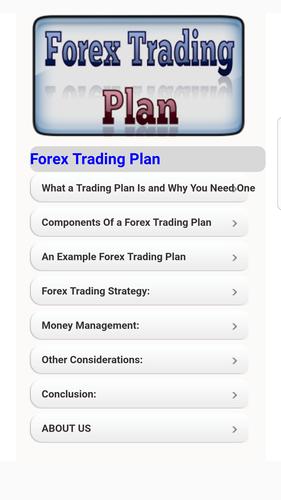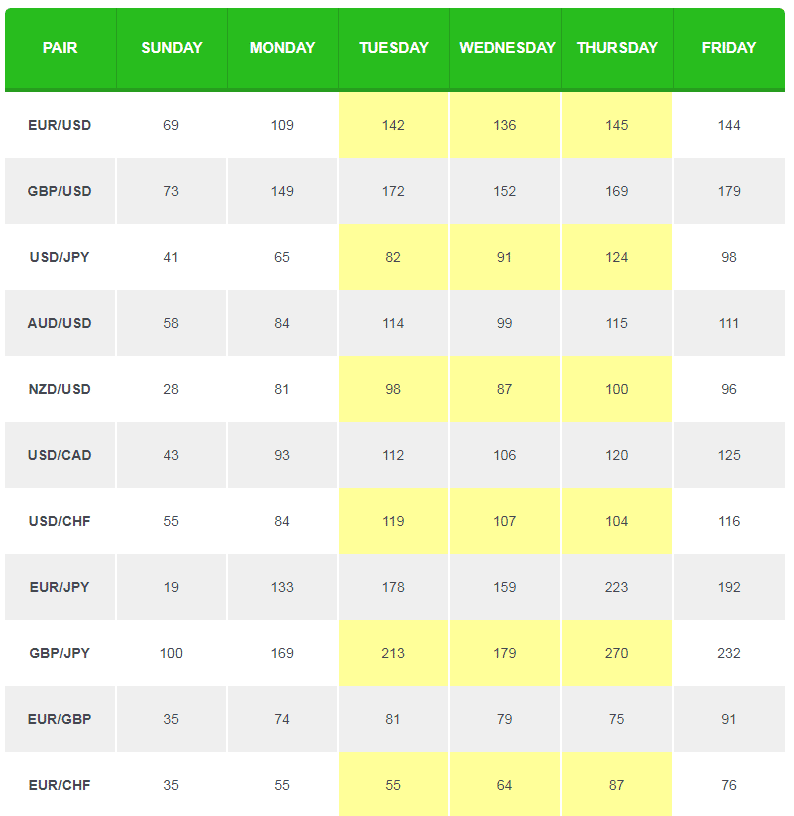
There are many aspects to the forex market. With $5.3 trillion in daily trading volume, it is the largest global over-the counter financial market. The market is open all day, but it is also true that many of the major players are not active on weekends. It's not uncommon for the market have lower trading volumes and smaller spreads. This can make trading difficult for traders.
The market is closed weekends but you can still do a lot. First, you can use the extra time to research and learn about the markets you're investing in. You can review your trades and refine your strategy. The third is that you can search for extra income opportunities.
You might be interested trading the gap, for example. This is the difference of the closing price of a currency pairs on Friday and the Friday price. It's not very popular, but it's a smart way to get in on all the action.

Fading is another option. It's a fancy way to close a gap during the same trading day. You won't probably see many of these over the weekend.
Trading may not be the best time of year to begin trading. It's not a good idea to dive headfirst into forex trading if you're just starting out. Professional traders might not like to take a week out. However, there are traders who don't want to work all the time and would rather make money on weekends. To make it more convenient, you might be in a position to arrange with your Forex broker to place some positions on the weekends.
But, your trading options are limited. You won't be able to trade weekends due to lower market volumes and higher transaction fees.
It is important to avoid trading on weekends as the market may not be as open. Many large financial institutions will be closed, and those that are open will be operating at a much lower capacity. There will be less liquidity available to you, and there will be more risk and possibility of slippage.

The prices of currencies that you trade will also be volatile. This can result in greater profits, but also larger losses. That's why it's important to be cautious and have an appropriate trade plan in place before you open a position.
You must do your research to understand the market and be a successful forex trader. You should take your time to find the strategy that suits your needs and goals. Lastly, be aware of what's coming up on the calendar and how you'll be able to take advantage of it.
FAQ
How can people lose money in the stock market?
The stock exchange is not a place you can make money selling high and buying cheap. It's a place you lose money by buying and selling high.
The stock market is an arena for people who are willing to take on risks. They would like to purchase stocks at low prices, and then sell them at higher prices.
They hope to gain from the ups and downs of the market. They might lose everything if they don’t pay attention.
How are securities traded?
The stock market allows investors to buy shares of companies and receive money. Investors can purchase shares of companies to raise capital. When investors decide to reap the benefits of owning company assets, they sell the shares back to them.
Supply and demand determine the price stocks trade on open markets. The price of stocks goes up if there are less buyers than sellers. Conversely, if there are more sellers than buyers, prices will fall.
There are two options for trading stocks.
-
Directly from your company
-
Through a broker
What is an REIT?
A real-estate investment trust (REIT), a company that owns income-producing assets such as shopping centers, office buildings and hotels, industrial parks, and other buildings is called a REIT. These publicly traded companies pay dividends rather than paying corporate taxes.
They are similar companies, but they own only property and do not manufacture goods.
How does Inflation affect the Stock Market?
Inflation affects the stock markets because investors must pay more each year to buy goods and services. As prices rise, stocks fall. That's why you should always buy shares when they're cheap.
What is a mutual fund?
Mutual funds consist of pools of money investing in securities. They provide diversification so that all types of investments are represented in the pool. This helps to reduce risk.
Mutual funds are managed by professional managers who look after the fund's investment decisions. Some funds permit investors to manage the portfolios they own.
Most people choose mutual funds over individual stocks because they are easier to understand and less risky.
What is the difference between a broker and a financial advisor?
Brokers help individuals and businesses purchase and sell securities. They take care of all the paperwork involved in the transaction.
Financial advisors have a wealth of knowledge in the area of personal finances. They can help clients plan for retirement, prepare to handle emergencies, and set financial goals.
Financial advisors can be employed by banks, financial companies, and other institutions. They can also be independent, working as fee-only professionals.
Consider taking courses in marketing, accounting, or finance to begin a career as a financial advisor. You'll also need to know about the different types of investments available.
Are stocks a marketable security?
Stock is an investment vehicle that allows you to buy company shares to make money. This can be done through a brokerage firm that helps you buy stocks and bonds.
Direct investments in stocks and mutual funds are also possible. There are over 50,000 mutual funds options.
These two approaches are different in that you make money differently. Direct investment is where you receive income from dividends, while stock trading allows you to trade stocks and bonds for profit.
In both cases you're buying ownership of a corporation or business. However, if you own a percentage of a company you are a shareholder. The company's earnings determine how much you get dividends.
Stock trading is a way to make money. You can either short-sell (borrow) stock shares and hope the price drops below what you paid, or you could hold the shares and hope the value rises.
There are three types: put, call, and exchange-traded. You can buy or sell stock at a specific price and within a certain time frame with call and put options. ETFs, also known as mutual funds or exchange-traded funds, track a range of stocks instead of individual securities.
Stock trading is very popular because investors can participate in the growth of a business without having to manage daily operations.
Stock trading is not easy. It requires careful planning and research. But it can yield great returns. This career path requires you to understand the basics of finance, accounting and economics.
Statistics
- The S&P 500 has grown about 10.5% per year since its establishment in the 1920s. (investopedia.com)
- "If all of your money's in one stock, you could potentially lose 50% of it overnight," Moore says. (nerdwallet.com)
- For instance, an individual or entity that owns 100,000 shares of a company with one million outstanding shares would have a 10% ownership stake. (investopedia.com)
- Our focus on Main Street investors reflects the fact that American households own $38 trillion worth of equities, more than 59 percent of the U.S. equity market either directly or indirectly through mutual funds, retirement accounts, and other investments. (sec.gov)
External Links
How To
How to Trade on the Stock Market
Stock trading refers to the act of buying and selling stocks or bonds, commodities, currencies, derivatives, and other securities. Trading is French for "trading", which means someone who buys or sells. Traders sell and buy securities to make profit. It is one of the oldest forms of financial investment.
There are many different ways to invest on the stock market. There are three types that you can invest in the stock market: active, passive, or hybrid. Passive investors simply watch their investments grow. Actively traded traders try to find winning companies and earn money. Hybrid investors use a combination of these two approaches.
Passive investing is done through index funds that track broad indices like the S&P 500 or Dow Jones Industrial Average, etc. This type of investing is very popular as it allows you the opportunity to reap the benefits and not have to worry about the risks. Just sit back and allow your investments to work for you.
Active investing is about picking specific companies to analyze their performance. Active investors will analyze things like earnings growth rates, return on equity and debt ratios. They also consider cash flow, book, dividend payouts, management teams, share price history, as well as the potential for future growth. They then decide whether or not to take the chance and purchase shares in the company. If they feel that the company's value is low, they will buy shares hoping that it goes up. On the other hand, if they think the company is overvalued, they will wait until the price drops before purchasing the stock.
Hybrid investment combines elements of active and passive investing. A fund may track many stocks. However, you may also choose to invest in several companies. In this instance, you might put part of your portfolio in passively managed funds and part in active managed funds.